How to clean Google/Gmail storage ?
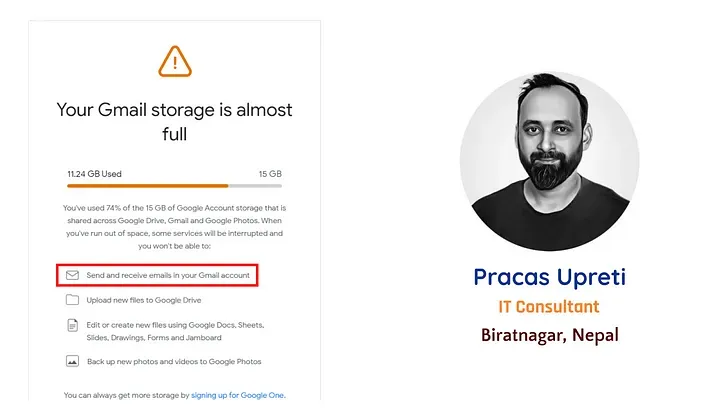
From its inception as a groundbreaking search engine to its evolution into a multifaceted tech powerhouse, Google has reshaped the way we access information, communicate, and collaborate.
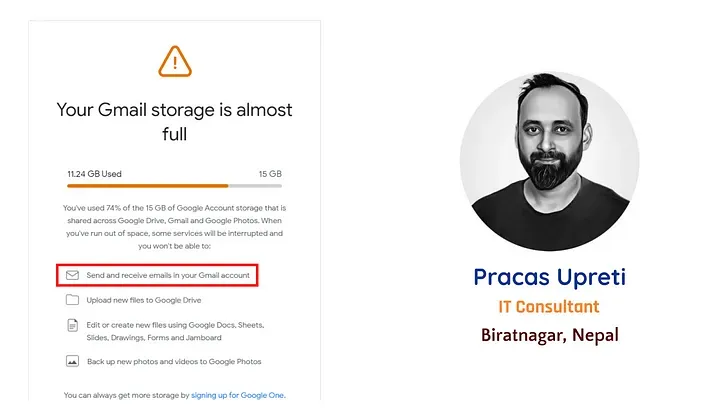
At the heart of this ecosystem lies Gmail, the innovative email service that revolutionized online communication with its user-friendly interface, abundant storage, and powerful features. Join us as we explore the history, developments, and future trends of Google and Gmail, uncovering insights into their impact on society, technology, and beyond.
Whether you’re a seasoned tech enthusiast or a curious newcomer, our blog promises to be a valuable resource for understanding and navigating the ever-evolving landscape of Google and Gmail. Let’s embark on this journey together into the realm of innovation and connectivity.
// To clean up your Google/Gmail's storage, you can follow these steps:
// Delete Unnecessary Emails
Go through your inbox, sent items, and other folders to delete any emails you no longer need. Be sure to empty your trash or bin afterward, as deleted emails still take up space until this is done.
// Check and Delete Large Attachments
Use Gmail search operators to find emails with large attachments. For example, you can search for “larger:10M” to find emails larger than 10 megabytes. Once you’ve identified them, decide if you can delete them or download the attachments locally and then delete the emails.
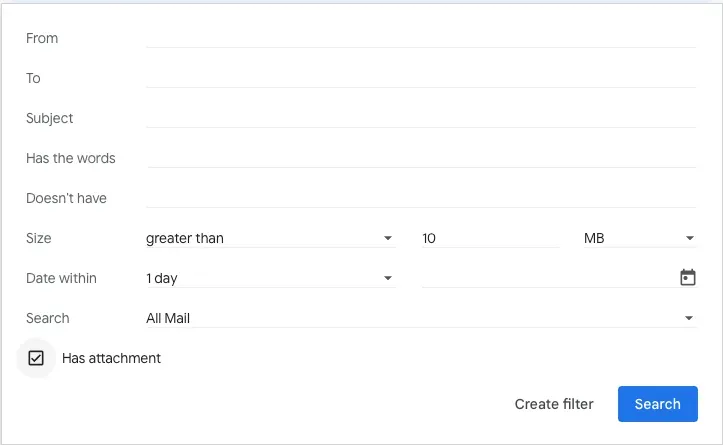
// Clear out Promotions and Social Tabs
Gmail automatically categorizes emails into tabs like Primary, Promotions, Social, etc. Go through these tabs and delete any emails you don’t need, especially in Promotions where marketing emails tend to accumulate.
// Archive Emails
Instead of deleting emails, you can archive them if you think you might need them later. Archiving removes emails from your inbox but keeps them accessible through Gmail’s search function.
// Google Drive
It is necessary to delete and empty trash in Google Drive where it can store unnecessary files and folders.
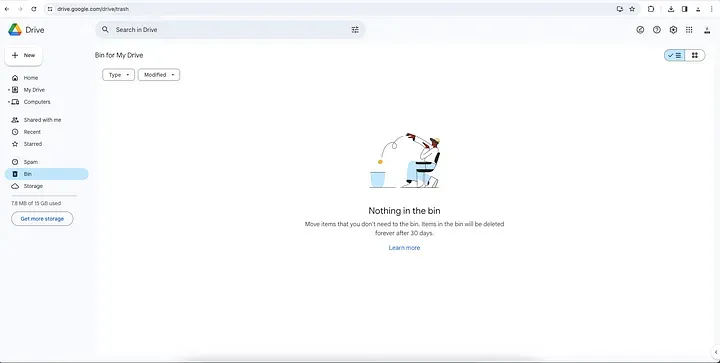
// Empty Spam Folder
Gmail automatically filters spam emails, but they can still accumulate and take up space. Periodically check your spam folder and delete any emails that shouldn’t be there.
- Use Google Drive: If you have large attachments or files that you need to keep, consider storing them in Google Drive instead of keeping them in your Gmail inbox. This can help free up space in your Gmail storage.
- Check and Clear Google Drive: If you’re using Google Drive, make sure to check for any large files or folders that you no longer need and delete them to free up space.
- Check Other Google Services: Remember that your Google storage is shared across various Google services like Gmail, Drive, Photos, etc. So, cleaning up one service might free up space across others as well.
- Upgrade Storage: If you find yourself consistently running out of space and need more storage, you can consider upgrading your Google storage plan for a monthly fee.
By following these steps, you should be able to clean up and manage your Google/Gmail storage effectively.
Why it is necessary to cleanup storage in Google account?
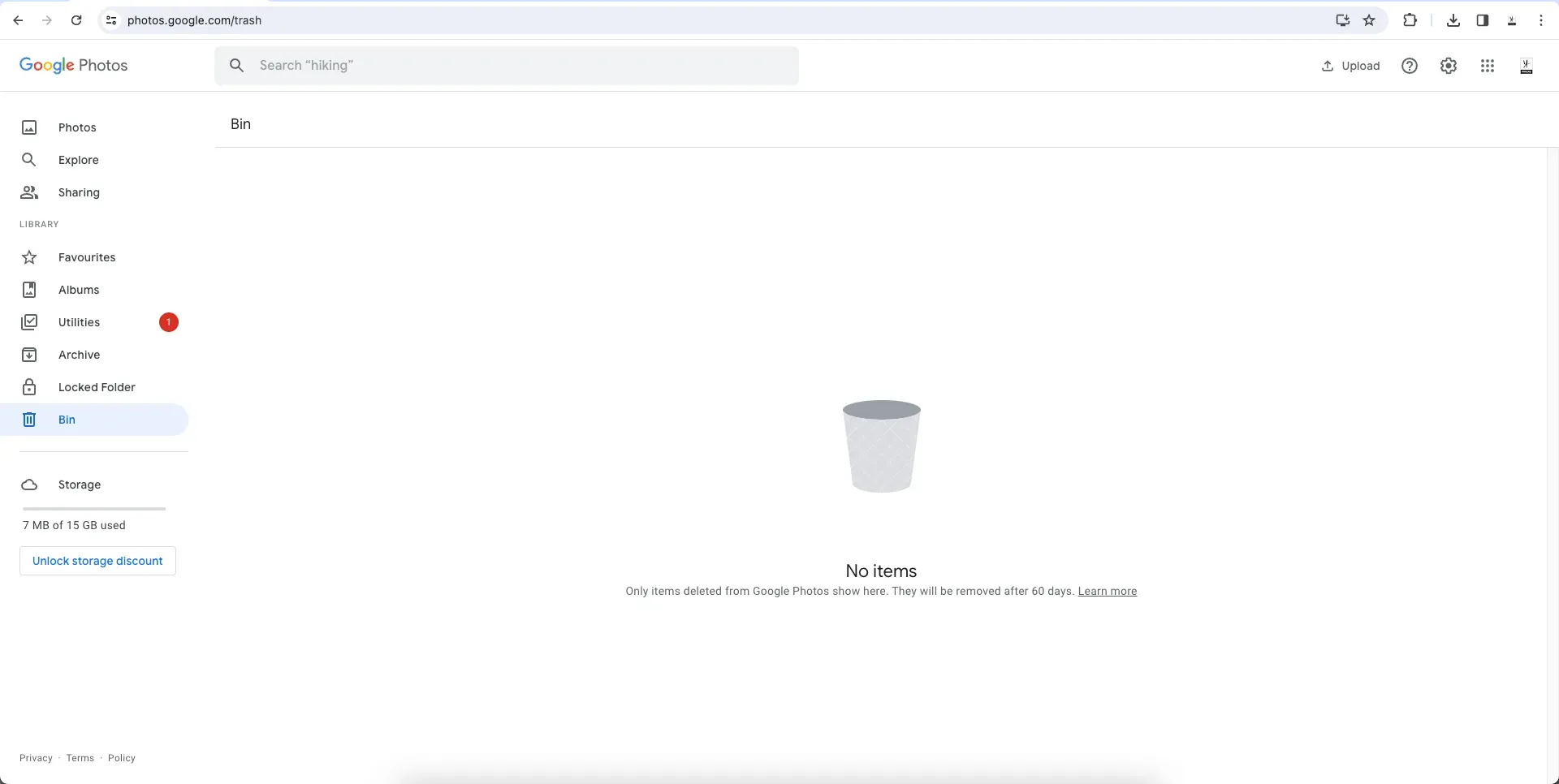
Cleaning up storage in your Google account is important for several reasons:
// Storage Limit
Google offers a certain amount of free storage space for services like Gmail, Google Drive, and Google Photos. Once you reach your storage limit, you won’t be able to receive new emails, upload new files to Google Drive, or back up new photos and videos to Google Photos until you free up space or upgrade your storage plan.
// Performance
An overcrowded storage can slow down the performance of your Google services. When your storage is full, it may take longer to send or receive emails, sync files in Google Drive, or load photos in Google Photos.
// Organization
Cleaning up your storage helps you stay organized and find important files or emails more easily. By removing unnecessary items, you can streamline your inbox, Drive, and Photos library, making it easier to locate the things you need.
// Security and Privacy
Keeping unnecessary data in your Google account can pose security and privacy risks. The more data you have stored, the more opportunities there are for unauthorized access or data breaches. By regularly cleaning up your storage, you can minimize these risks and ensure that only the necessary information is retained.
// Cost
If you rely on Google’s free storage tier and constantly exceed your storage limit, you may end up having to pay for additional storage. Cleaning up your storage can help you avoid unnecessary costs by efficiently managing the space you have.
Overall, cleaning up storage in your Google account is essential for maintaining performance, organization, security, and cost-effectiveness. It ensures that your Google services continue to function smoothly and that your data remains safe and manageable.




